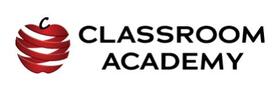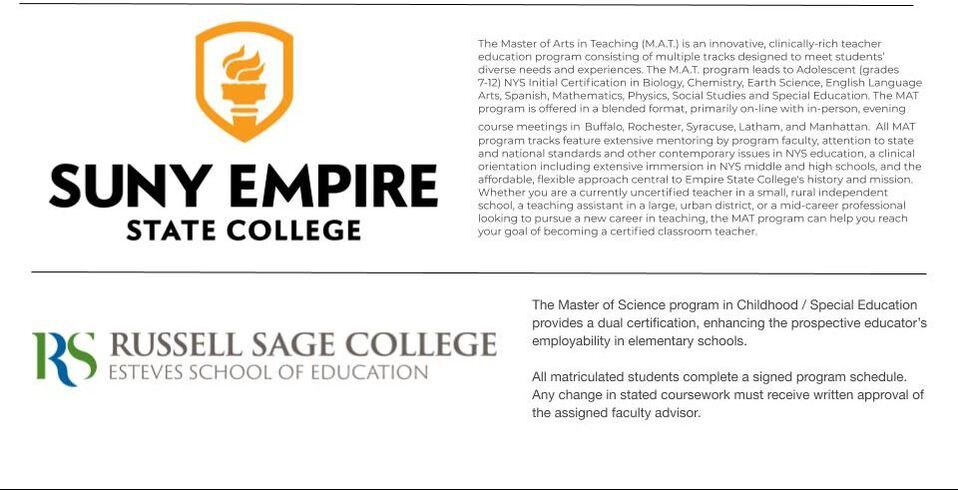Pioneering Partnerships and the Apprenticeship Pathway
Under the Classroom Academy Apprenticeship pathway,
SUNY candidates are eligible for $5,000 tuition assistance.
Contact your SUNY graduate program to find out more.
The Classroom Academy has envisioned and enacted a very different partnership model. P-12 and higher education have forged a collective efficacy, responsibility, and ownership around teacher preparation. This required significant shifts in how the participating organizations — unions, school districts, and institutions of higher education — traditionally interacted. To navigate this shift, the Classroom Academy instituted shared stakeholder governance. Districts have an equal voice at the table, identify target certification areas for recruitment based on local context, and leverage local resources to meet local needs. Higher education has responded to the shifting needs of both candidates and demands of the field through open communication, recruitment efforts, program adjustments, and course delivery changes producing classroom ready teachers for the communities in which they are trained.
|
Experience for educators needs to be contextualized, modeled, practiced, and guided by carefully selected, high-quality expert teachers in the communities that the candidates may serve. The student teaching model of the 1950s, dropping candidates for 40 day placements in districts, with volunteer teachers willing to accept them, can not adequately prepare candidates for a job of this importance. Given the opportunity to be embedded with an expert teacher for two years the Classroom Academy (CA)--a 500% increase of student contact time over traditional models-- produces a classroom ready novice, familiar with the community, the school personnel, norms and protocols within the school community, and any instructional priorities or curriculum resources used. It removes barriers of equity by providing classroom ready new hires for all students and will encourage retention.
|
Re-envisioning ExperienceClinical Experiences may include based on our partners:
|
The Washington-Saratoga-Warren-Hamilton-Essex BOCES does not discriminate in its programs and activities, including employment and admission as applicable, on the basis of actual or perceived race, color, creed, sex, sexual orientation, national origin, religion, age, economic status, marital status, veterans' status, political affiliation, domestic victim status, use of a guide dog, hearing dog or service dog, disability, or other classifications protected under federal or state law, and provides equal access to the Boy Scouts and other designated youth groups. The designated district compliance officer(s) will coordinate compliance with the nondiscrimination requirements of Title VI and Title VII of the Civil Rights Act of 1964, Title IX of the Education Amendments of 1972, Section 504 of the Rehabilitation Act of 1973, the Age Discrimination Act of 1975, the Americans with Disabilities Act of 1990, as amended, the Boy Scouts of America Equal Access Act, and the New York State Human Rights Law. The BOCES Civil Rights Compliance Officer is: Turina Parker, Washington-Saratoga-Warren-Hamilton-Essex BOCES, 267 Ballard Road, Suite 5, Wilton, NY 12831. phone: (518) 581-3716, email: [email protected]. Complaints may also be filed with the Office for Civil Rights, New York Office, U.S. Department of Education, 32 Old Slip, 26th Floor, New York, NY 10005- 2500, phone (646) 428-3800, fax (646) 428-3843, email:[email protected].






